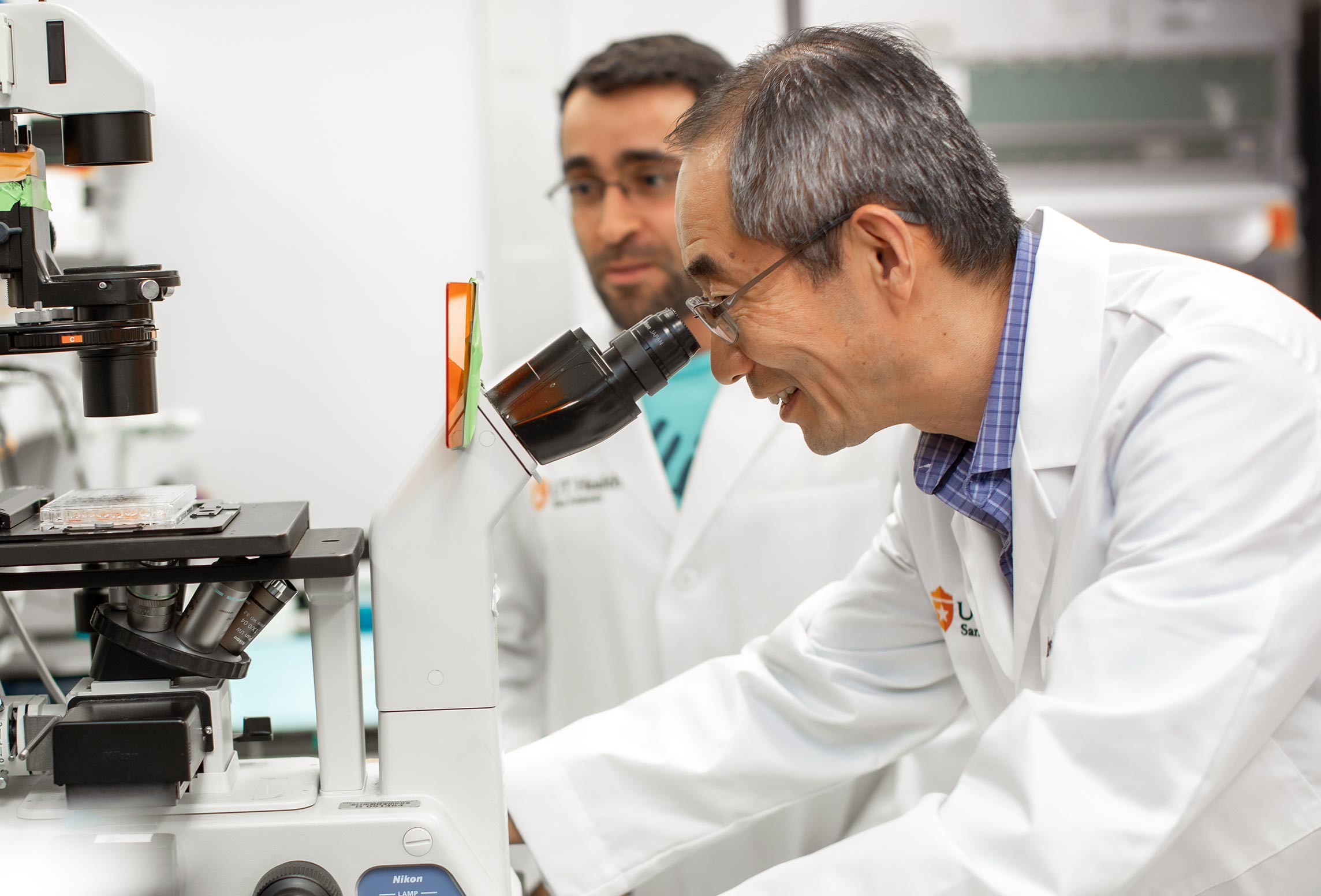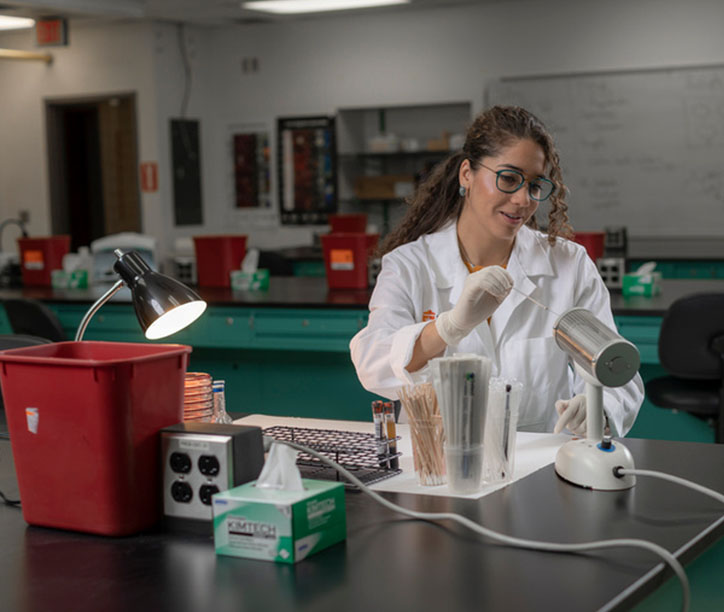
Our Community Outreach and Engagement Impact
- About Us
-
Cancer Care
-
Our Cancer Programs
- Adolescent and Young Adult Cancer Program
- Blood Cancer & Hematological Malignancy Program
- Blood Disorder (Hematology) Program
- Breast Cancer Program
- Cancer Genetics Program
- Cancer Risk Reduction and Education Clinic
- Cardio-Oncology Program
- Childhood Cancer Survivorship Program
- Endocrine Tumor Program
- Eye Cancer Program
- Gastrointestinal (GI) Cancer Program
- Genitourinary Cancer Program
- Gynecologic Oncology Program
- Head and Neck Cancer Program
- Liver Tumor and Cancer Program
- Lung Cancer Program
- Neuro-Oncology (Brain Tumor) Program
- Neurofibromatosis Program
- Pediatric Neuro-Oncology Program
- Pediatric Oncology Program
- Pediatric Sarcoma Program
- Pediatric Thrombosis Program
- Radiation Oncology
- Sarcoma Cancer Program
- Skin Cancer Program
- Supportive Cancer Care Program
-
Screening and Diagnosis
- Cervical Cancer Screening Guidelines
- Colorectal Cancer Screening
- Endometrial (Uterine) Cancer Screening Guidelines
- Hepatitis and Cancer
- HPV Vaccine and Screenings
- Liver Cancer Guidelines
- Lung Cancer Screening
- Mammogram
- Ovarian Cancer Screening Guidelines
- Prostate Cancer Screening Guidelines
- Skin Cancer Screenings
- Sun and Skin Safety
- Tobacco Use and Cancer
- Skin Cancer Screenings
- Cancer Genetics Program
- Cancer Survivorship Program
- Cancer Treatments
- Conditions
-
Our Cancer Programs
- Clinical Trials and Research
- Donate and Volunteer
- Education
- Patients and Families
- Appointments
- Doctors and Locations
-
Community Outreach and Engagement Program
- Message from COE Leadership
- South Texas Cancer Burden and COE Areas of Work
- Our COE Impact
- COE Community Advisory Board
- COE Publications
- Avanzando Caminos (Leading Pathways) Study
- Estudio Avanzando Caminos (Leading Pathways)
- San Antonio Firefighters Cancer Prevention Program
- STAR Immunotherapy Study
Community Outreach and Engagement at Mays Cancer Center, home to UT Health San Antonio MD Anderson Cancer Center, extends the reach of our research and elevates the level of cancer care.
We address health disparities by improving cancer awareness and access to screenings, care and clinical trials for eligible patients. We work alongside community partners to share information and insights.
About the cancer burden and health disparities in South Texas
For many people in South Texas, health education and cancer services are not easily accessible. Of the 38 counties we serve, 25 are rural. Twenty-four of these rural counties have been designated as primary care health shortage areas by the U.S. Department of Health and Human Services.
These factors make it difficult for people to access cancer prevention, treatment and survivorship services. Find out more about the South Texas cancer burden and what we are doing to address it.
Our community outreach and engagement activities
Community outreach and engagement activities distinguish centers such as ours that receive an NCI designation.
Our initiatives address:
Research priorities
We adjust our research agenda to align with the community’s greatest needs. For example, breast cancer is often detected at a younger age in Hispanic women. Hispanic women also have a higher prevalence of aggressive triple-negative breast cancer (TNBC).
Mays Cancer Center researchers are exploring new care options using antidepressants as part of TNBC treatment. We have completed early studies demonstrating how an approved antidepressant inhibits the growth and spread of TNBC. Learn more about our Experimental and Developmental Therapeutics program.
Health policy and modifiable risk factors for lung cancer
We played a key role in limiting tobacco sales to teenagers and young adults in our community to address the high incidence of lung cancer across all races and ethnicities. A 2018 ordinance, San Antonio Tobacco 21, raises the minimum age for tobacco sales from 18 to 21 years old.
We also piloted Quitxt, a text message-based smoking cessation program, in primary care practices. Messages in English and Spanish give participants helpful recommendations on how to quit smoking. Initial results have been positive, and we’re looking to expand the program to more patients.
Find out more about Quitxt. Or view Quitxt program information in Spanish.
Liver cancer in rural and underserved communities
We are addressing the high incidence of liver cancer (hepatocellular carcinoma, or HCC) and its precursor, hepatitis C virus (HCV) infection. In partnership with UT Southwestern Medical Center and area health education centers (AHECs), we are raising awareness through the Screen, Treat, or Prevent (STOP) HCC program.
STOP HCC provides educational programming to clinicians and clinic staff about preventing HCV and HCC. Primary care practices serving low-income populations now screen for and manage chronic HCV infection in at-risk populations.
Minority participation in clinical trials
Since 2012, Mays Cancer Center has been taking steps to increase the representation of minorities in clinical trials. Our long-standing Clinical Trials Minority Accrual Committee develops strategies to address this issue.
Recent efforts include adding bilingual Spanish clinical trial coordinators to care teams and educating physicians to raise awareness. We have seen marked improvements in minority accrual, specifically within the Hispanic population.
Get more information about cancer clinical trials and research.
Explore Mays Cancer Center
Find out more about how our research is helping us advance cancer care in South Texas and across the country.
How can our team help you?
Through publications and speaking engagements, we share how we're advancing care in our region.
Meet our research team
Our research team includes cancer experts from different medical specialties and scientists who share a commitment to advancing care and outcomes.

 Close
Close
